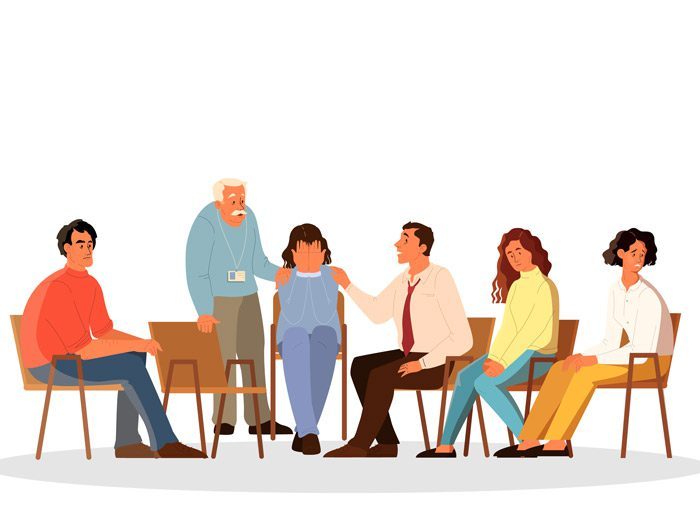
Being a Support Role for a Loved One
When someone you love has unmanaged mental health problems, it may seem at times that the emotional rollercoaster is too much to bear. You ebb from worry and helplessness to frustration and even anger. These feelings are valid, and how you learn more about your support role and to care for yourself might help.
Stick to the Facts
Just like any other health situation, we have better clarity if we start with a foundation of facts. This includes gaining a better understanding of your loved one’s illness, helping them with management methods and treatments, and staying on top of better mental health resources.
At first, all this may sound like you’re doing everything for them. You’re not—that’s not your job. However, there’s value to knowing how to better navigate their world and support them in the healthiest way possible for both of you.
The American Psychiatric Association (APA) recommends educating yourself about your loved one’s condition. This enables you to understand the illness and its symptoms, as well as what to expect and potential treatments. It’s important to turn to quality resources for the most reliable information. Here are some to bookmark:
- American Psychological Association
- Depression and Bipolar Support Alliance
- Dial 211 for Essential Community Services
- National Alliance on Mental Illness
- National Council for Mental Wellbeing
- Mental Health America
- National Institute on Mental Health
Let this list be a beacon of hope that you’re never alone on this journey.
The APA also recommends having a calm and non-judgemental approach to talking with the person you love about their health and treatment: “Listen; don’t disregard or challenge the person’s feelings. Remind them that seeking help is a sign of strength.” This position is even more critical when dealing with mental health and mood disorders, as centuries of myths and stigmas make the process far more challenging sometimes.
Put On Your Oxygen Mask First
Just as a caregiver of someone with physical disabilities might have times where there are simply not enough hours in the day, coping with a loved one’s mental health issues requires a certain resilience. This doesn’t always have to be a process forged by fire, but instead can be reinforced with small but effective routine habits that focus on your wellbeing.
Find a Support Group for Your Support Role
You might have the most incredible family members and friends in the world, but few of them know exactly what it takes to care for someone struggling with mental health issues. To boost your own mental and emotional welfare, you should be surrounded by individuals who inherently understand what you’re going through and provide an open yet confidential forum for your thoughts and feelings and access to helpful resources. All of the agencies referenced above provide links to extensive support networks both in-person and online.
Nurture Yourself
A whole foods diet, regular exercise, a dedication to better sleep, and creating a state of calm provide a foundation for your best self. Any one of us can slip into a quicksand of junk food, alcohol, “doom scrolling” online, and sitting around when we feel overwhelmed. Instead, work with your physician and a therapist to help establish a self-care routine that keeps your proverbial tank topped off so you don’t get depleted.
Circle the Wagons for Support
Are you the person who always has to watch your grandchildren when your child has a mental break? Are you working full-time and caring for the entire household because your wife is ill? Is your brother always calling in the middle of the night because he feels he doesn’t have anyone else to turn to? These and other scenarios can really drain your ability to be fully present and supportive for your loved one. It’s all too common for us to put on a brave face while we try to handle everything, but inside, we’re crumbling. So ask for help. It might surprise you that people didn’t really know what you and the person you care for are dealing with each day, and they’d be honored to step up.
Learn How to Handle Things More Effectively
We’ve mentioned numerous resources already, but some provide additional strategies to help you manage whatever happens with your loved one and their condition—and not feel so alone. For example, the National Alliance on Mental Illness offers the NAMI Family–to–Family program: a series of free sessions “in a designated evidence-based program. This means that research shows that the program significantly improves the coping and problem-solving abilities of the people closest to a person with a mental health condition.” It’s available to family, significant others, and friends of people with mental health conditions.
The Family Program at Cottonwood Tucson
The board-certified staff at Cottonwood Tucson recognize that an individual’s mental or emotional struggle affects others, and each person deserves dedicated care, information, and support for an effective recovery.
Our family program is a week-long intensive to shift old patterns of behavior, create new learning opportunities, and develop a better path to wellness. Through communication enactment, communication training, education, and multiple family group support, you and your loved ones will discover hope and possibility. Talk to a member of our admissions staff to see how our family can help yours.






